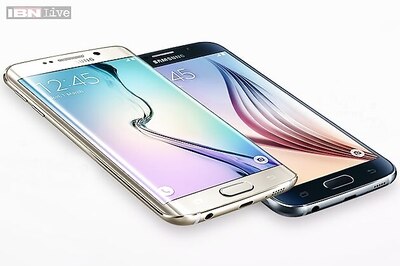
views
HYDERABAD: A gay couple from the US flew down to the city recently to rent a womb and start a family of their own.“It is the first successful case of same-sex couple we have treated in 10 years though the number of patients coming from abroad has been on the rise in the last two years,” revealed Charulata Chatterjee, embryologist at Dr Rama’s Institute for Fertility.However, she refused to divulge details of the couple in question and the surrogate mother who agreed to bear a child for them.Less expensive treatment and ease of finding willing surrogates in a shorter time-frame draws a large number of couples from abroad to Hyderabad. The number of gay couples opting for Hyderabad as a surrogacy destination has also been increasing, albeit marginally.“We have helped less than 10 same-sex couples from abroad have children through surrogate mothers in the last three years.In these cases, one of the parents is genetically linked to the child by being the sperm donor.There is a necessity for one of the parents to be genetically linked to the child born through surrogacy to obtain an exit visa for the baby,” explains Dr Samit Shekhar, chief embryologist at Kiran Infertility Centre.The centre works in collaboration with Surrogacy Abroad, a Chicago-based agency which helps couples find potential surrogates in India.The normal window period for finding a willing surrogate mother abroad is two-and-a-half to three years on an average while it is just two to three months in India.Further, IVF treatment costs around `1 lakh, including the cost of treatment and drugs given to the surrogate mother.The woman, who volunteers for surrogacy, is paid an average of `3-4 lakh, depending on the arrangement between the intending parents and the agents who locate willing surrogate mothers.Compare this to the $ 20,000 (`10 lakh) charged by surrogate in the US, going by a figure mentioned in a blog which interviewed a gay couple from the US, Mike Griebe and Brad Fister who became parents through a surrogacy programme conducted in Hyderabad in 2009.The Legal angleCommercial surrogacy, which was legalised in India in 2002, presently works on the guidelines provided by the Indian Council of Medical Research (ICMR) on Assisted Reproductive Technologies (ART) in 2005.The bill on surrogacy drafted in 2011 is still pending in the Parliament, which leaves only the ICMR guidelines as the only basis for ethical practice in ART.“We did receive a large number of inquiries from agencies in the US for surrogacy programme.When asked about the nature of the couples recommended, they specified that close to 60 per cent were same-sex couples.While there is no law to deny such couples the right to a surrogate child, our institute personally discourages this.Over the last two years, about 15 per cent of patients seeking the treatment have been foreigners of non-Indian origin,” says Dr.K.Anuradha of Anu Test Tube Baby Centre.She adds that often the two year wait to adopt a baby in India drives couples to try surrogacy as an alternative in the meantime.Absence of a mechanism to check the status of egg donors and potential surrogates is a cause for concern in the fast-growing sector of ART medical tourism.ICMR guidelines clearly state that a commercial surrogate can carry only thrice.“Many times we come across surrogates who have undergone the IVF treatments at different clinics across the city.Once I came across a potential surrogate whose ovaries were enlarged and after a lot of probing she disclosed that she was on the roll of egg donors for another clinic.Though financial constraints drive most of the women to volunteer as surrogate mothers, upto 40 per cent of them are unsuitable for the procedure as implantation of the embryo does not occur,” observes Dr K Anuradha.Worse still, some clinics go knocking on doors of rural poor to persuade them to offer themselves.



















Comments
0 comment